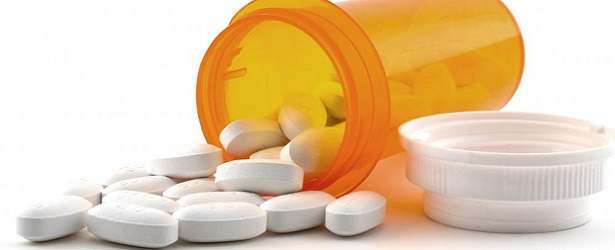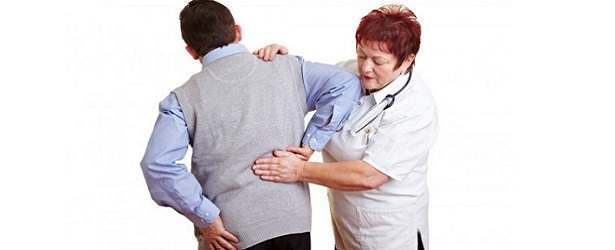Antibiotics for Urinary Tract Infections
Urinary tract infections are caused by bacteria and antibiotics are used to kill the bacteria that cause the infection as well as reduce the reoccurrence of it. The antibiotic course is given to the following people who:
- Are pregnant and have UTIs that are recurring in nature.
- Have been having a lot of UTIs, which is especially the case with women.
- Have had a kidney transplant.
- Are having surgery that involves the urinary tract.
- Have a nervous system disorder that affects urination or have a spinal cord injury.
Antibiotics are an effective method of getting rid of UTIs and it is recommended that one should complete the full course of antibiotics that is recommended. If you stop the treatment before you are supposed to then you may cause a relapse of the infection. Usually, the infection starts to clear after a day or two of antibiotics.
Side Effects of Antibiotics
Antibiotics have side effects. Many people don’t feel them or can cope with them. One can read about the side effects that may be caused by the product or can ask the pharmacist about them.
Most of the time the side effects aren’t severe and the importance of the medicine taken should be given precedence. However, if the side effects persist then it is recommended that one consult a doctor. The doctor will either change the medicine or reduce the dosage of that medicine.
One should call for emergency services if there is a swelling on the throat, face, lips or tongue or if there is trouble breathing.
One should call a doctor as soon as the following symptoms are noticed:
- vomiting
- abdominal pain
- chills
- fever
There are a few side effects that are common when taking antibiotics:
- vaginal inflammation
- tiredness
- Diarrhoea
- mild stomach pains
- headaches
- dizziness
Things to Remember
 Many antibiotics make the skin sensitive and therefore one should take care when going out in the sun as well as take precautions by wearing long-sleeved clothing. Use a sunscreen with SPF that a doctor has recommended. Always keep in mind that the medicine that has been prescribed is taken at the right time, in the correct dosages and at the right intervals. Antibiotics are the right path to take if you are not well and your doctor suggests it. However, beware of the dangers of self-medication, as we might not understand certain symptoms that can be indicative of a far more dangerous underlying disease or infection.
Many antibiotics make the skin sensitive and therefore one should take care when going out in the sun as well as take precautions by wearing long-sleeved clothing. Use a sunscreen with SPF that a doctor has recommended. Always keep in mind that the medicine that has been prescribed is taken at the right time, in the correct dosages and at the right intervals. Antibiotics are the right path to take if you are not well and your doctor suggests it. However, beware of the dangers of self-medication, as we might not understand certain symptoms that can be indicative of a far more dangerous underlying disease or infection.
It is important to consult a doctor and to continue the treatment until it has run its course. If there are side effects, as mentioned in the above section, be sure to consult a doctor immediately and not try to find a solution on your own.

 Subscribe Now
Subscribe Now


 Bladder infection, also called cystitis, occurs within the bladder. Some people call a bladder infection a UTI.
Bladder infection, also called cystitis, occurs within the bladder. Some people call a bladder infection a UTI. Acute pyelonephritis is a sudden and severe kidney infection. This condition causes the kidneys to swell, can permanently damage the kidneys, and can even be life-threatening.
Acute pyelonephritis is a sudden and severe kidney infection. This condition causes the kidneys to swell, can permanently damage the kidneys, and can even be life-threatening.

 Cystitis usually clears up on its own. However, if are experiencing the symptoms of cystitis, it’s a good idea to consult a doctor. If your symptoms get worse or don’t improve within two to three days, contact your doctor for advice. He or she will be able to rule out any other conditions that could be causing your symptoms. Your doctor will ask about your symptoms and examine you and may also ask you about your medical history. A sample of your urine might be tested using a ‘dipstick’. Depending on the results, a sample of your urine may be sent to a laboratory for further tests.
Cystitis usually clears up on its own. However, if are experiencing the symptoms of cystitis, it’s a good idea to consult a doctor. If your symptoms get worse or don’t improve within two to three days, contact your doctor for advice. He or she will be able to rule out any other conditions that could be causing your symptoms. Your doctor will ask about your symptoms and examine you and may also ask you about your medical history. A sample of your urine might be tested using a ‘dipstick’. Depending on the results, a sample of your urine may be sent to a laboratory for further tests.



 The cause of an overactive bladder is unknown. Risk factors include obesity, caffeine, and
The cause of an overactive bladder is unknown. Risk factors include obesity, caffeine, and  A Urinary Tract Infection (UTI), also known as acute cystitis or bladder infection, is an infection that affects part of the urinary tract. When it affects the lower urinary tract it is known as a bladder infection and when it affects the upper urinary tract it is known as a kidney infection. Symptoms from a lower urinary tract include painful urination and either frequent urination, the urge to urinate or both. The symptoms of pyelonephritis include fever and flank pain in addition to the symptoms of a lower UTI.
A Urinary Tract Infection (UTI), also known as acute cystitis or bladder infection, is an infection that affects part of the urinary tract. When it affects the lower urinary tract it is known as a bladder infection and when it affects the upper urinary tract it is known as a kidney infection. Symptoms from a lower urinary tract include painful urination and either frequent urination, the urge to urinate or both. The symptoms of pyelonephritis include fever and flank pain in addition to the symptoms of a lower UTI.